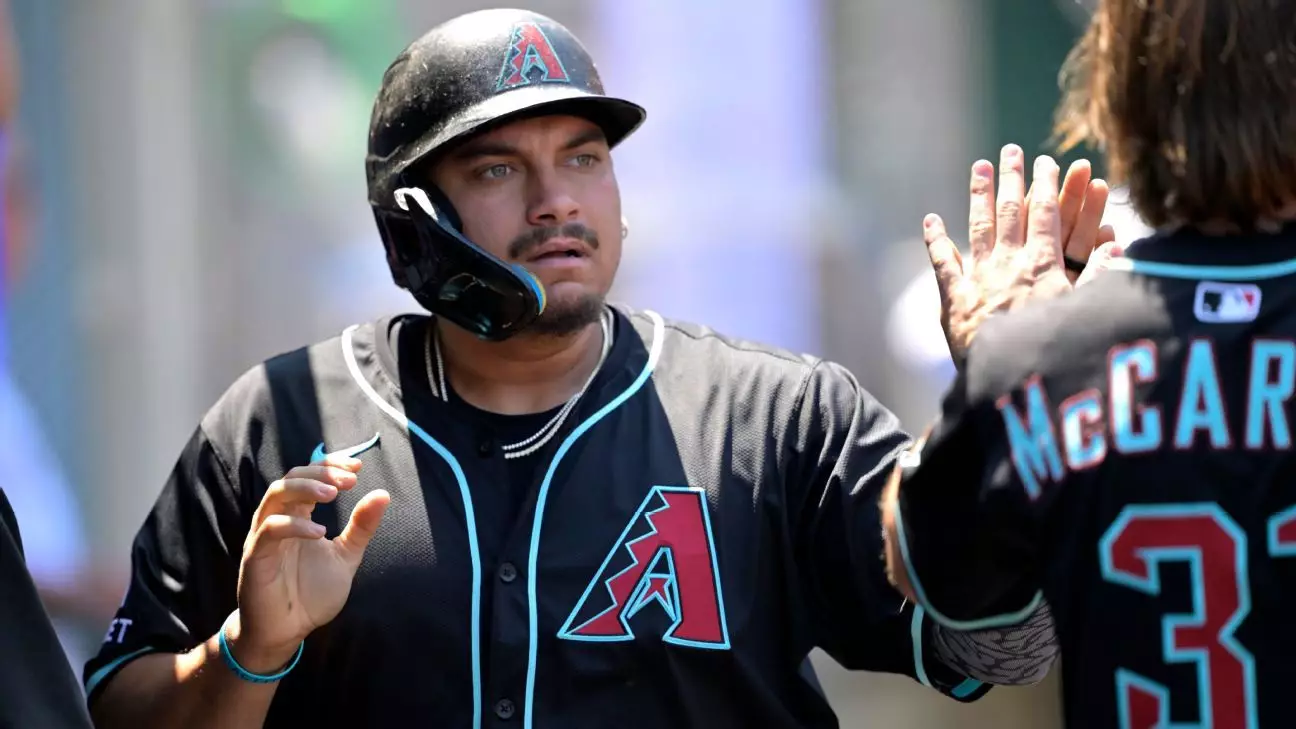In a daring maneuver that underscores their renewed ambition, the Seattle Mariners have taken a decisive step toward rekindling their postseason aspirations with the acquisition of first baseman Josh Naylor. This trade is more than just a transaction; it’s a statement that the Mariners are fully committed to not just contending but positioning themselves as serious contenders in the fiercely competitive American League. By actively seeking to bolster their roster before the July 31 deadline, the Mariners send a clear message: they are willing to make bold moves to secure their place among baseball’s elite. This is a team that recognizes the urgency of the moment and is prepared to leverage both present talent and future potential to maximize their chances of postseason success.
The trade’s timing is impeccable. Coming off a season where they ended a 20-year postseason drought, Seattle remains in the thick of the playoff race, currently holding a slim but promising lead for a wild-card spot. Their recent victory over the Los Angeles Angels exemplifies their resilience and potential, but to maintain and expand their momentum, they must reinforce their core. The acquisition of Naylor—a dependable slugger with a low strikeout rate—could be the spark that elevates their offensive production while providing flexibility in lineup configuration. This move epitomizes a franchise not content with incremental improvements but eager to make a significant leap forward.
Strategic Patience and Long-Term Vision
Contrasting with the Mariners’ ambitious approach, the Arizona Diamondbacks have revealed a more pragmatic and open-minded stance toward their roster’s future. Their willingness to part with key players like Josh Naylor, amid a season that hasn’t met their postseason expectations, highlights a club focused on strategic planning and building for tomorrow. Arizona’s targets include established stars whose contracts will soon expire, a clear indication that they value flexibility and cost-efficiency over short-term fixes.
The Diamondbacks’ core—featuring talented players such as Corbin Carroll and Ketel Marte—remains promising, but rotation instability caused by injuries and impending free agency prompts them to act. Attempting to capitalize on the trade deadline, Arizona is not just depleting their roster but reshaping it. They aim to acquire pitching prospects like Brandyn Garcia and Ashton Izzi—young arms with high ceiling—to fortify their farm system for future seasons. Their approach involves a delicate balance: they want to remain competitive this year while laying the foundational pieces for sustained success. It’s a calculated gamble that reflects a broader philosophy of patience, investment in development, and readiness to pivot once the season concludes.
Prospects, Potential, and the Future of Baseball Strategy
The prospects involved—Garcia, Izzi, and others—symbolize a shift in how teams view trade assets. Instead of short-term rentals or one-dimensional veterans, both the Mariners and Diamondbacks are prioritizing youth with high upside. Garcia, a power pitcher with a volatile but promising profile, demonstrates the modern trend of valuing raw talent and potential over immediate results. Similarly, Izzi embodies the archetype of a young pitcher with room to grow and refine his craft. This focus on prospects indicates a philosophical departure from the traditional blockbuster deals involving established stars; it’s about laying the groundwork for future dominance.
What’s intriguing is the emphasis on pitching depth. With injuries and free agency hovering over core rotation pieces like Merrill Kelly and Zac Gallen, Arizona’s strategy involves building an internal pipeline of talent. As teams like Seattle hold onto their deep farm systems, they showcase a willingness to nurture prospects rather than sell chunks of their future for immediate gains. This approach reflects a conviction that sustainable success derives from cultivating homegrown talent, which can be both cost-effective and true to a team’s identity.
The Cultural Shift: From Reactive to Proactive Management
Both franchises illustrate a broader evolution in modern baseball management—one that favors proactive planning over reactive desperation. The Mariners, by choosing not to break their pipeline of top prospects in favor of immediate fixes, demonstrate confidence in their ability to develop future stars. Conversely, the Diamondbacks show a maturity in identifying their core strengths and strategically shedding assets that no longer serve their long-term goals.
This cultural shift isn’t just about player transactions; it’s about redefining how teams approach competitiveness, patience, and growth. It represents a maturity that recognizes that winning isn’t solely about patching holes with quick-fix veterans but about building a resilient, self-sustaining system. These moves signal that the era of impulsive, one-season-focused trades is waning in favor of well-calculated projects, aimed at creating a sustainable powerhouse over multiple seasons.
By consciously investing in prospects and maintaining their core strengths, the Mariners and Diamondbacks are shaping baseball’s future landscape—one where strategic patience, internal development, and bold vision take precedence over short-term gains. In this new era, success is less about instant gratification and more about long-term dominance, a philosophy these teams are now actively embodying with each calculated move.

